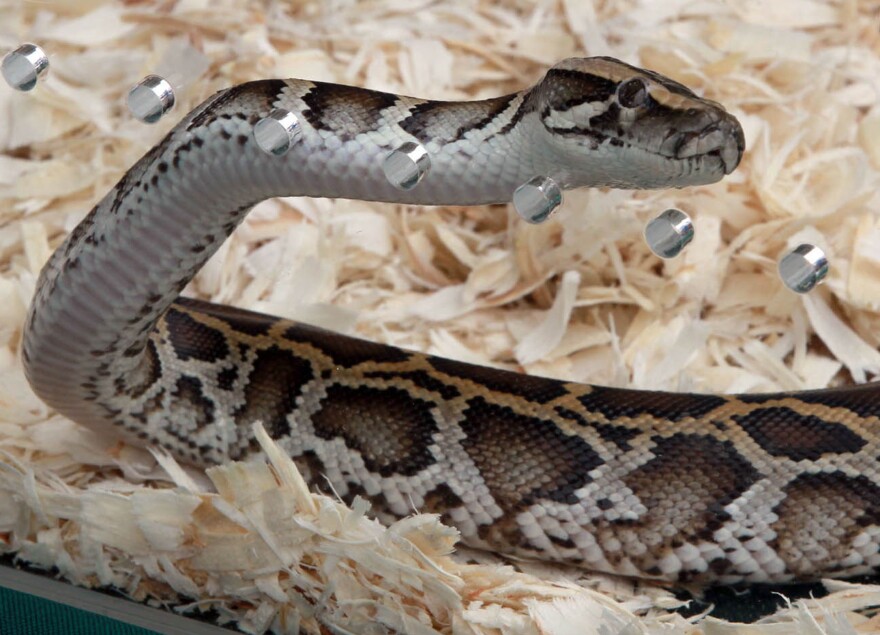This headline may make you go "huh?"
"Biggest Python in Florida Snake Hunt Released Back into the Wild."
Read into that story from ABC News, though, and you will soon learn the reason why the more than 11-foot-long snake and two of his smaller cousins were set free instead of killed when the state's 2013 Python Challenge ended over the weekend.
They've each been implanted with two transmitters in the hope that they'll lead researchers to breeding females — who will in turn then be captured and killed.
In other words, these three snakes are studs sent out to snitch.
As authorities try to get a hold on the state's python problem — "as many as 150,000 of them [are] slithering about in the Florida underbrush," as Korva wrote Saturday — they want to track down those females during this current breeding season.
They're also hoping to recapture the tagged snakes.
About 1,600 people signed up to hunt pythons during the 2013 challenge. Sixty eight snakes were caught this year.
Update at 12:45 p.m. ET. A Little More And A Little Video:
Frank Mazzotti, a professor of wildlife at the University of Florida who helped organize the python challenge, emails us to say that the big snake measured 11 feet, 1 inch, while the other two that now have transmitters are each 8- to 9-feet long.
And if you want to learn more about the python problem in Florida, there's a video from the Florida Fish & Wildlife Conservation Commission.
Copyright 2021 NPR. To see more, visit https://www.npr.org.




